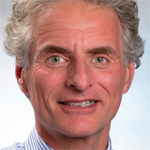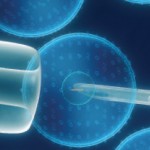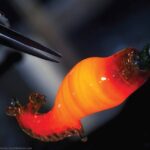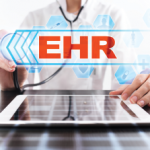The patent dispute began in 2014 when Zhang appeared as the lone inventor on a broad patent covering CRISPR-Cas9. To win it, he filed a declaration with the patent office saying he had invented the idea on his own and offered lab notebooks to back up the claim.15 (This would not be the first time that lab notebooks could play such a prominent role in a biomedical research case.16)
In counterclaims filed with the patent office, lawyers for UC Berkeley say pages and diagrams from Zhang’s lab notebooks show only some related experiments and don’t prove he invented the system. “Dr. Zhang is wrong,” they conclude. UC Berkeley won the next round by claiming a suggestion of interference, an arcane procedure used to show that their patent claim may be superior to the Broad’s. But the final phase of the trial is only getting started, and no doubt it will be a highly entertaining spectacle. As one patent attorney quipped, “It’ll be like watching Nobel Prize winners defend themselves in traffic court.”17
Lessons Learned
Decisions lacking thoughtful, rigorous scientific analysis can be hazardous to everyone’s health.
Beware of strangers or familiar faces bearing gifts. These may be in the form of new technologies that promise to improve your EHR, enhance the quality of your care and lower healthcare costs; untested, proprietary methodologies that purport to disrupt the way we order lab tests; or false assurances, such as those claiming that opioids are not addictive when used to manage chronic pain.
And to researchers everywhere, a final plea. Save your lab notebooks! Their data are precious. One day, they may be far, far more valuable than you could ever imagine.
 Simon M. Helfgott, MD, is associate professor of medicine in the Division of Rheumatology, Immunology and Allergy at Harvard Medical School in Boston.
Simon M. Helfgott, MD, is associate professor of medicine in the Division of Rheumatology, Immunology and Allergy at Harvard Medical School in Boston.
Updated 4/21/2016 to reflect new Theranos information.
References
- Monegain B. More than 80 percent of docs use EHRs. Healthcare IT News. 2015 Sep 18.
- Wachter R. The Digital Doctor: Hope, Hype, and Harm at the Dawn of Medicine’s Computer Age. New York: McGraw-Hill, 2015.
- Google search results: EHR problems. About 3,680,000 results (0.63 seconds) 2016 Feb 14.
- Subbaraman N. Partners to invest in QPID health software. Beta Boston. 2016 Jan 14.
- McCluskey PD. New records system takes bite out of Partners earnings. 2016 Feb 12. Boston Globe.
- Pear R. New guidelines nudge doctors to give patients access to medical records. 2016 Jan 16. The New York Times.
- Auletta K. Blood, simpler: One woman’s drive to revolutionize medical testing. The New Yorker. 2014 Dec 15.
- Reingold J. Theranos’ board: Plenty of political connections, little relevant expertise. Fortune. 2015 Oct.
- Carreyrou J. Theranos lab practices pose risk to patient health, regulators say. The Wall Street Journal. 2016 Jan 27.
- U.S.: 5% of world population; 80% of opioid consumption. AllGov. 2014 Dec 15.
- Wax-Thibodeaux E. New rules on narcotic painkillers cause grief for veterans and VA. The Washington Post. 2015 Feb 18.
- Jones CM, Lurie PG, Throckmorton DC. Effect of US Drug Enforcement Administration’s rescheduling of hydrocodone combination analgesic products on opioid analgesic prescribing. JAMA Intern Med. 2016 Jan 25. doi: 10.1001/jamainternmed.2015.7799.
- Liptak A. Justices, 9-0, bar patenting human genes. The New York Times. 2013 Jun 13.
- Regalado A. CRISPR patent fight now a-winner-take-all match. MIT Technology Review. 2015 Apr 15.
- Sherkow JS. CRISPR dispute to be decided by Patent Office. MIT Technology Review. 2016 Jan 12.
- Kevles DJ. The Baltimore Case: A Trial of Politics, Science, and Character. New York: W.W. Norton & Co. Inc., 1998
- Sherkow JS. The CRISPR patent interference showdown is on: How did we get here and what comes next? Stanford Law and Biosciences Blog. 2015 Dec 29.


